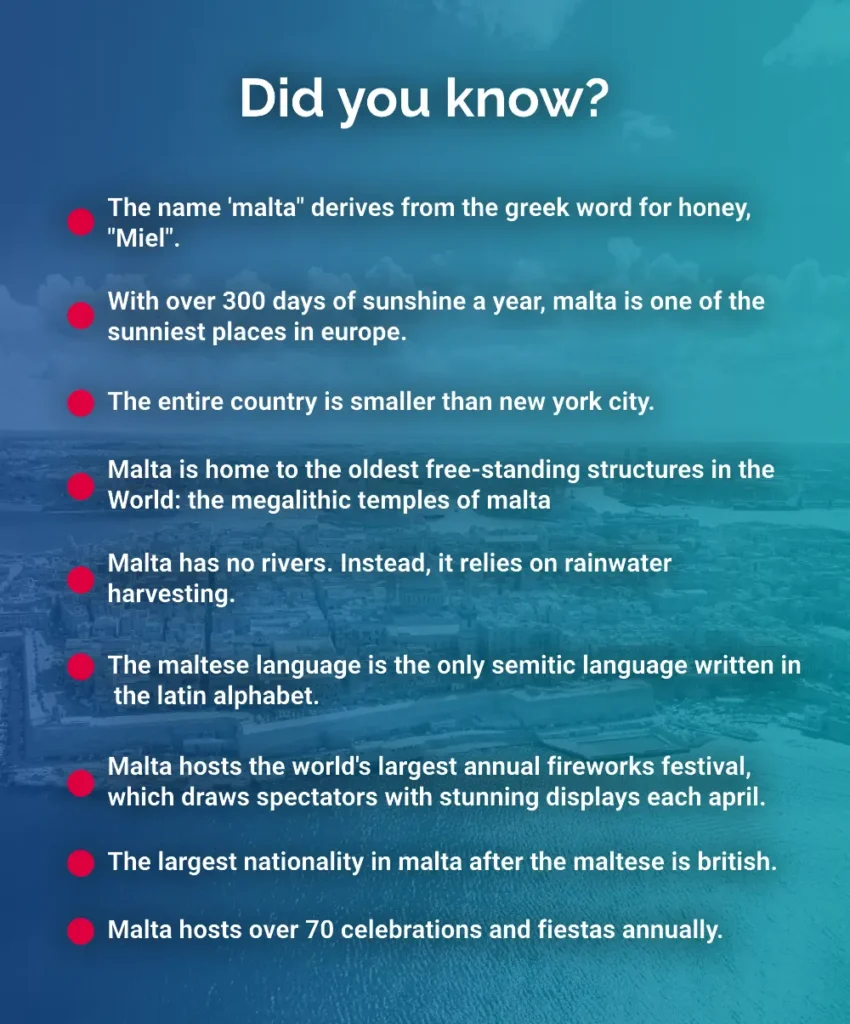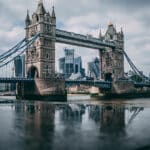Malta, a small island nation in the Mediterranean south of Italy, is known for its fascinating history, stunning coastlines, and vibrant culture. Its warm climate, English-speaking population, and welcoming lifestyle attract people worldwide—not just for vacations but as a place to live.
In this guide, we’ll cover everything you need to know about Malta, from its history and culture to daily life and local communities.
- Quick Facts About Malta
- Location of Malta
- Climate in Malta
- The History of Malta: An Overview
- The Population and People of Malta
- Language in Malta
- Religion in Malta
- Economy in Malta
- Government and Society in Malta
- Culture in Malta
- The Best Cities in Malta
- Cuisine in Malta
- Healthcare in Malta
- Education in Malta
- Is Malta a good place to live in?
- Pros and Cons of Living in Malta
- How to move to Malta?
- Interesting Facts About Malta
- Frequently Asked Questions All About Malta
Quick Facts About Malta
Official name | The Republic of Malta |
Location | Southern Europe |
Capital city | Valletta |
Official languages | Maltese and English |
Population | 545,405 (2025) |
Currency | Euro (€) |
Country code | 356 |
Time zone | CET |
Malta is a small island nation in Southern Europe, in the central Mediterranean Sea, just south of Italy. It’s well-known for its rich history, shimmering coastlines, and pleasant Mediterranean climate. This tiny country is popular for both tourism and as a place to live
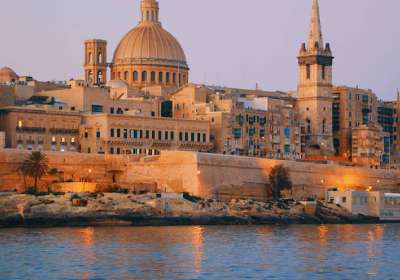
The Maltese archipelago consists of three main islands: Malta, Gozo, and Comino, with Malta being the largest and most populated.
Gozo is Malta’s second-largest island, best known for its more rural and tranquil lifestyle. Comino is the smallest of the three, and it’s a popular tourist destination for holidays and vacations.
The official languages are Maltese and English, both widely spoken across the islands.
With a population of approximately 541,500 people as of 2024, Malta is one of the most densely populated countries in the world and home to a diverse community of people from all over the globe
Its cultural mix, combined with widespread English, pleasant year-round weather, and a relaxed lifestyle, makes it an appealing destination for foreigners seeking to set base in Europe.
Location of Malta
Malta is an archipelago of coralline limestone in Europe’s Mediterranean Sea. It lies approximately 81 kilometers south of Sicily, Italy, nearly 300 kilometers north of Libya, and northeast of Tunisia in Africa.
Because of its strategic location, Malta is considered a bridge between southern Europe and the North African region. Moreover, Malta has played a huge role in overseas trading and has been attracting foreign investors who want to obtain Malta Citizenship and Malta Residency by Investment.
Climate in Malta
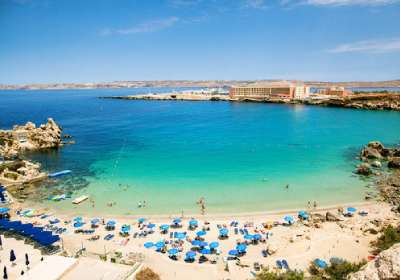
In fact, Malta averages nearly 3,000 hours of sun per year, making it one of the sunniest places in Europe!
During the summer season, which lasts from June to September, temperatures average between 30°C and 35 35°C. Because of the warm weather and mild climate, Malta is one of the most popular tourist destinations for those seeking to enjoy beautiful sandy beaches, swim, snorkel, and sailing.
In the winter, Malta’s temperature rarely drops below 10°C, and rain occurs more frequently. The Maltese islands rarely experience extreme weather, such as thunderstorms and strong winds.
The History of Malta: An Overview
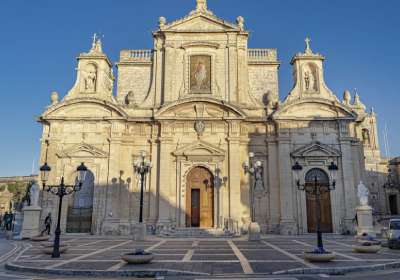
Over the centuries, the Carthaginians and Romans ruled Malta and integrated it into their trading network.
In the Middle Ages, Malta came under Norman rule and became part of the Kingdom of Sicily. The Knights of St. John arrived in the 16th century, fortifying the island and defending it during the Great Siege of Malta in 1565.
Malta became a British colony after the Treaty of Paris in 1814, which led to the development of dockyards and settlements.
During World War II, Malta served as a base for Allied forces, enduring severe bombardments from Axis powers. The bravery of the Maltese people earned them the George Cross from King George VI.
Malta gained independence in 1964 and joined the European Union in 2004.
The Mediterranean Sea has been vital to Malta’s development, acting as a hub for trade and supporting industries like fishing and tourism.
The Population and People of Malta
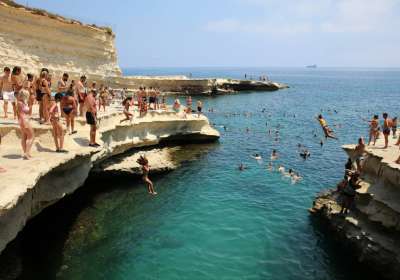
Most of Malta’s population lives on the main island, where you’ll find a mix of historical influences—from Ancient Greeks to Italian, British, and Roman influences.
Malta’s community is known for being kind and welcoming, especially toward expats. This is an essential part of Maltese culture. Throughout the entire year, foreigners and locals can enjoy local festivals, concerts, and gatherings in the open air.
The people living on the islands of Malta are tight knit. Even though it’s a bit more demanding to blend in, once you are accustomed to the village lifestyle and the people, it will be hard to leave.
Additionally, Malta is one of the more open-minded European countries. Not by chance, the Malta LGBT scene is vibrant, respectful, and inclusive, and the country is very open to modern ideas and concepts such as crypto.
Language in Malta
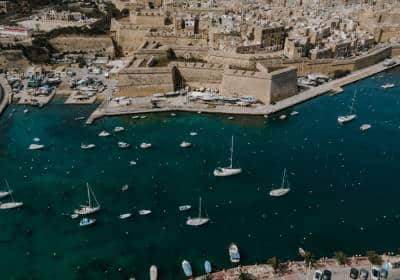
The Maltese language, on the other hand, is a Semitic language deeply influenced by Siculo-Arabic, apart from comprising vocabulary from Italian, English, and Latin languages.
Maltese is the only Semitic language written in Latin script, making it accessible to speakers of other European languages. It is normally used for everyday conversation and communication, while English is primarily used in education, business, and government. a
Religion in Malta
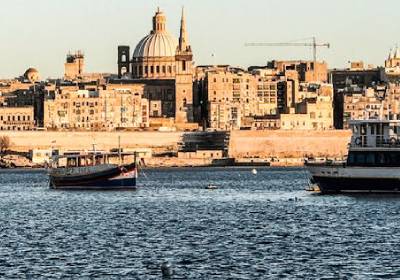
Malta hosts a range of religious festivals throughout the year. Also known as festi, they celebrate different patron saints with processions, fireworks, and music.
The most iconic religious landmarks in Malta are St. John’s Co-Cathedral in Valletta and the Anglican Cathedral.
Even though Malta is predominantly a Roman Catholic country, the island has residents of other religions, such as Muslims and Jews. The government ensures religious freedom.
Economy in Malta
Malta has had a strong economy throughout history. It has a thriving industry in tourism, fishing, and manufacturing, as well as strong financial services and information technology. In recent years, Malta has established itself as one of the dominant countries in the crypto and gambling space.
Thanks to its membership in the European Union, Malta has been dominating the trade and investment sectors and its crucial gateway between Europe and the North African region.
However, tourism has remained one of the most important aspects of the Maltese economy, with the islands attracting millions of visitors each year. The main reason is Malta’s sunny climate, historic sites, and vibrant culture.
Malta also has a very developed maritime industry. Due to its strategic position in the middle of the Mediterranean, Malta offers various maritime services.
The economy in Malta is further supported by construction and real estate, driven by an influx of foreign investment and the development of luxury residential projects.
Government and Society in Malta
Today, Malta is a parliamentary republic with a clear distinction between the executive, legislative, and judicial branches. It gained independence from British colonial rule in 1964 and earned the status of a republic within the Commonwealth in 1974.
Malta’s political scene is dominated by two main political parties: the Labour Party and the Nationalist Party. Over the years, these parties have alternated in power. The Labour Party is concerned with social welfare policies, national development, economic growth, and international business opportunities. At the same time, the Nationalist Party has been focused on Malta’s European ties and its role within the European Union.
Culture in Malta
Throughout history, Malta has been in contact with different cultures, which is reflected in its present-day culture, which is a rich blend of Mediterranean and European traditions.
Instruments like the għana and percussion are essential to traditional Maltese music and folk dancing. Maltese people also enjoy crafts, such as filigree jewelry, lace-making, and pottery, commonly sold in tourist destinations.
Malta also has a very rich and immersive architecture and this can be best seen in Valletta. Built by the Knights of St. John, Valletta is home to Baroque palaces, Byzantine architecture, and grand churches like St. John’s Co-Cathedral, which boasts intricate Baroque art and Caravaggio’s famous paintings. In Valletta, you’ll also find several modern cultural events, such as music festivals, art exhibitions, and theater performances.
Gozo, the smaller island of the Maltese archipelago, is far more focused on rural traditions. There, you’ll find the Megalithic temples of Ġgantija, a UNESCO World Heritage Site. Comino, with its Blue Lagoon, is best known for its stunning nature.
The Best Cities in Malta
Whether you’re seeking to retire in Malta or live there as a digital nomad, each of the country’s cities has something unique to offer – beaches, historical attractions, culture, and more.
Here’s a breakdown of the 5 best cities to live in Malta.
Valletta
Valletta, Malta’s capital, is known for its rich history, stunning architecture, and vibrant cultural scene. It’s a UNESCO World Heritage site offering numerous restaurants, shops, and events. Valletta serves as the administrative and commercial center of Malta, making it ideal for those seeking job opportunities.
Sliema and St. Julian’s
These neighboring towns are popular for their modern amenities, bustling nightlife, and beautiful seafront promenade. They attract young professionals and families with a mix of luxury apartments and traditional homes. St. Julian’s is particularly known as the hub of Malta’s iGaming and tech industries.
Mellieha
Located in the north, Mellieha is famous for its beautiful sandy beaches and outdoor activities. It offers a relaxed lifestyle and is perfect for families and retirees. The area provides easy access to stunning natural attractions and the ferry to Gozo, another picturesque island.
Mdina and Rabat
Mdina, the ancient capital, is characterized by its medieval architecture and tranquil atmosphere. It offers a slower pace of life with beautiful views and historical sites. Nearby Rabat complements this with more residential options while still being close to Mdina’s historic charm.
Ta’ Xbiex
This small coastal town is known for its beautiful marina and luxury villas, making it one of the most sought-after areas in Malta. Ta’ Xbiex is home to several embassies and offers a range of amenities, including great dining options, making it attractive for expatriates and affluent locals.
Cuisine in Malta
Malta’s cuisine is focused on the Mediterranean diet, and consists of fresh seafood, seasonal vegetables, strong spices, and dried herbs.
Since Malta has such a strong fishing industry, fresh seafood is a staple. Here are five typical dishes from Malta:
- Aljotta: A hearty fish soup flavored with garlic, tomatoes, and herbs, it often features fresh fish and is served with crusty bread.
- Lampuki Pie: This savory pie is filled with mahi-mahi (lampuki) and vegetables like spinach and capers, all encased in a flaky pastry.
- Octopus Stew: A rich stew, made with tender octopus, tomatoes, potatoes, and various spices.
- Bragioli: Maltese beef olives stuffed with minced meat, herbs, and spices, slow cooked in a rich tomato sauce.
- Pastizzi: Flaky pastry filled with ricotta or mushy peas, these popular snacks are often enjoyed as a quick bite or street food.
- Fenkata: This popular Maltese dish is made with rabbit, usually marinated in wine and garlic, before being slow-cooked. It’s often served with vegetables and pasta.
- Kwareżimal: A traditional Maltese cookie made during Lent, Kwareżimal is flavored with almonds, citrus zest, and spices.
- Imqaret: A pastry filled with dates and flavored with spices such as cinnamon and anise. Imqaret is deep-fried and enjoyed as a sweet treat.
The island of Malta also has amazing wines, such as Gellewza and Ġirgentina, which complement the local cuisine.
Healthcare in Malta

Public healthcare in Malta is available to all Maltese citizens and EU residents who can enjoy various medical services.
Private healthcare in Malta often offers faster access to medical services and shorter waiting times than public healthcare. Patients can choose from different private hospitals and clinics, which provide specialized treatments and consultations. The average price range for private health insurance in Malta is typically between €300 and €800 per year.
Mater Dei Hospital is the largest hospital in Malta. It has modern facilities offering state-of-the-art treatments, and it serves as a hub for both emergency care and specialized medical services.
The Maltese government has continued to invest in the healthcare infrastructure to meet the needs of its growing population.
Malta is also a popular destination for “medical tourism.” That means citizens of other European countries go to Malta to get affordable yet high-standard medical treatments. Additionally, foreigners can easily communicate with doctors in English.
Here’s a breakdown of the approximate medical costs in Malta.
Healthcare Type | Description | Approximate Costs |
Public Healthcare | Funded by taxes; accessible to all residents | Free or minimal fees (e.g., €1.50 for prescriptions) |
Private Healthcare | Faster access to services and specialized care | Consultations: €50 - €100 |
Medical tests: €30 - €200 | ||
Hospital stay: €100 - €500 per day | ||
Surgery: €1,500 - €10,000+ |
Education in Malta
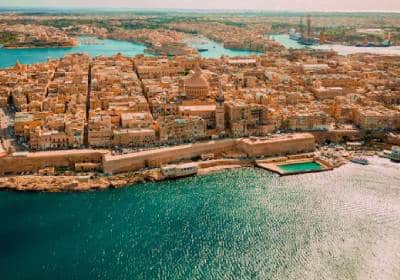
Public schools provide a strong foundation in core subjects such as math, sciences, and languages, while private and international schools offer alternative curriculums for families seeking a more global perspective.
Expat families will have several international schools in Malta to choose from, all providing students with top-class, global education.
Malta is also home to an array of prestigious higher education institutions. One of the best universities in Malta is the University of Malta, which was established in 1592 and is among the oldest in Europe. It offers undergraduate, postgraduate, and doctoral programs across several fields, from engineering and law to arts and humanities.
Malta has invested in research and educational initiatives that align with its goals of economic growth and technological advancement. Maltese students benefit from traditional and modern teaching methods, and many pursue further studies abroad.
Is Malta a good place to live in?
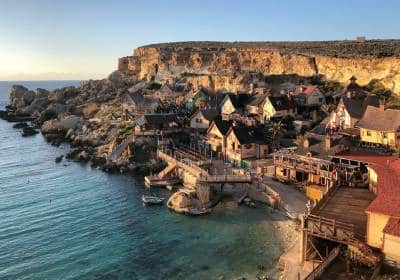
Many people, especially British and American expats, are moving to Malta for its booming economy, especially in sectors like technology, finance, and gaming, which offers numerous job opportunities.
The cost of living in Malta is also very affordable, especially compared to other European countries such as England, France, and Germany.
The island also has a welcoming expat community, making it easier for newcomers to settle in.
Additionally, Malta’s favorable tax environment and EU membership provide further incentives for individuals and families seeking a vibrant and supportive place to call home.
Pros and Cons of Living in Malta
Pros of Living in Malta | Cons of Living in Malta |
Mediterranean Climate: Malta enjoys a pleasant climate with hot, dry summers and mild, rainy winters, which is ideal for outdoor activities year-round. | Limited Space: As one of the most densely populated countries in the world, finding a place to live can be challenging, and you may encounter crowded public spaces. |
Rich History and Culture: The island has a long and vibrant history, evident in its medieval architecture and diverse festivals. | Traffic: Increasing population and tourist numbers have led to traffic congestion, and the public transportation system may not be well-connected, necessitating a car rental. |
Prime Location: Situated centrally in the Mediterranean, Malta provides easy access to Europe, North Africa, and the Middle East, making it a great hub for travel. | Extremely Hot Summers: While many enjoy the summer heat, temperatures can become excessively high, potentially causing water shortages in some areas. |
English Proficiency: English is one of the official languages, making it easier for expatriates to navigate daily life and communicate with locals. | Cultural Adjustment: Although Maltese people are generally welcoming, adapting to a new culture can be challenging, especially for those who do not speak English. |
Welcoming Locals: The warm and hospitable nature of the Maltese people fosters a strong sense of community, making it easy to feel at home. | Economic Dependence on Tourism: The economy heavily relies on tourism, which can result in fluctuations in job security and business stability. |
How to move to Malta?
EU/EEA and Swiss citizens can move to Malta permanently without a long-stay visa (D visa). Instead, they only have to apply for a registration certificate.
Non-EU/EEA and Swiss citizens can move to Malta through varying visa options. Such as:
Malta Permanent Residency by Investment Program
The Malta Residency by Investment Program allows non-EU nationals to obtain a Certificate of Maltese Permanent Residence, allowing them to live legally and indefinitely in Malta with their family members indefinitely.
Foreign nationals must meet several criteria to apply for the Malta Golden Visa, including holding sufficient assets and paying the investment of government contributions, property investment in Malta, and a donation to a Malta non-for-profit organization of choice. Malta residency allows individuals to enjoy visa-free travel within the Schengen Zone.
Malta Citizenship by Naturalization for Exceptional Services by Direct Investment (CES)
Malta Citizenship by Investment (CES) allows foreign individuals and their families to become Maltese citizens, provided they make significant contributions to Malta’s economy and society.
This usually involves significant government contributions, buying or renting property, and a donation to a Malta non-for-profit organization. The program is the only European Citizenship by Investment program to obtain a Malta passport if applicants pass the government’s four-tier due diligence process and make the required investment.
As part of our commitment to providing transparent and reliable services, we are proud to be a licensed agent in Malta, holding the official license number AKM-AGEN. This certification demonstrates our dedication to the highest standards in the investment migration industry and further enhances our ability to offer expert guidance and support to our clients.
Interesting Facts About Malta
Frequently Asked Questions All About Malta
What is Malta known for historically and culturally?
Historically speaking, Malta is known for ancient megalithic temples and it’s home to several UNESCO World Heritage sites. On the cultural side, Malta has a rich and diverse culture which is a blend of different influences. On top of that, it has amazing cuisine and great cultural heritage in the form of different festivals.
Where is Malta located geographically in Europe?
Malta is located in the middle of the Mediterranean Sea and thus has access to North Africa, Europe, and the Middle East.
What are the most important cities and regions to visit in Malta?
The best cities in Malta include:
- Valletta, the capital city
- Mdina, ancient capital
- Sliema
- St. Julian’s
- Gozo
What official languages are spoken in Malta, and how widely is English used?
The official languages spoken in Malta are Maltese and English. It’s important to note that plenty of locals speak English and communication shouldn’t pose an issue.
What are the key benefits of living in Malta as an expat or retiree?
The key benefits of living in Malta as an expat or retiree include the Mediterranean climate, English being one of the official languages, and lower costs of living when compared to other European countries.
How accessible is Malta for travelers and tourists?
Malta is very accessible for travelers and tourists, as many choose to access the island of Malta through the Malta International Airport. Besides that, there’s public transportation on the island and ferry services to help you travel.
What are Malta's key historical landmarks and UNESCO World Heritage sites?
Malta’s key historical landmarks and UNESCO World Heritage sites are:
- St. John’s Co-Cathedral
- Megalithic Temples
- Mdina
- The Ħaġar Qim Temples
- The Palace of the Grand Masters
- The Hypogeum of Ħal-Saflieni
- Fort St. Elmo
- The Blue Grotto
- Fortifications of Valletta

